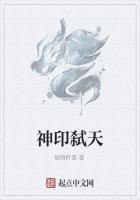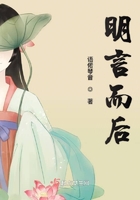Alexandre Dumas is a writer, and his life is a topic, of which his devotees never weary. Indeed, one lifetime is not long enough wherein to tire of them. The long days and years of Hilpa and Shalum, in Addison--the antediluvian age, when a picnic lasted for half a century and a courtship for two hundred years, might have sufficed for an exhaustive study of Dumas. No such study have I to offer, in the brief seasons of our perishable days. I own that Ihave not read, and do not, in the circumstances, expect to read, all of Dumas, nor even the greater part of his thousand volumes. We only dip a cup in that sparkling spring, and drink, and go on,--we cannot hope to exhaust the fountain, nor to carry away with us the well itself. It is but a word of gratitude and delight that we can say to the heroic and indomitable master, only an ave of friendship that we can call across the bourne to the shade of the Porthos of fiction. That his works (his best works) should be even still more widely circulated than they are; that the young should read them, and learn frankness, kindness, generosity--should esteem the tender heart, and the gay, invincible wit; that the old should read them again, and find forgetfulness of trouble, and taste the anodyne of dreams, that is what we desire.
Dumas said of himself ("Memoires," v. 13) that when he was young he tried several times to read forbidden books--books that are sold sous le manteau. But he never got farther than the tenth page, in the "scrofulous French novel On gray paper with blunt type;"he never made his way so far as "the woful sixteenth print.""I had, thank God, a natural sentiment of delicacy; and thus, out of my six hundred volumes (in 1852) there are not four which the most scrupulous mother may not give to her daughter." Much later, in 1864, when the Censure threatened one of his plays, he wrote to the Emperor: "Of my twelve hundred volumes there is not one which a girl in our most modest quarter, the Faubourg Saint-Germain, may not be allowed to read." The mothers of the Faubourg, and mothers in general, may not take Dumas exactly at his word. There is a passage, for example, in the story of Miladi ("Les Trois Mousquetaires") which a parent or guardian may well think undesirable reading for youth. But compare it with the original passage in the "Memoires" of D'Artagnan! It has passed through a medium, as Dumas himself declared, of natural delicacy and good taste. His enormous popularity, the widest in the world of letters, owes absolutely nothing to prurience or curiosity. The air which he breathes is a healthy air, is the open air; and that by his own choice, for he had every temptation to seek another kind of vogue, and every opportunity.
Two anecdotes are told of Dumas' books, one by M. Edmond About, the other by his own son, which show, in brief space, why this novelist is so beloved, and why he deserves our affection and esteem. M.
Villaud, a railway engineer who had lived much in Italy, Russia, and Spain, was the person whose enthusiasm finally secured a statue for Dumas. He felt so much gratitude to the unknown friend of lonely nights in long exiles, that he could not be happy till his gratitude found a permanent expression. On returning to France he went to consult M. Victor Borie, who told him this tale about George Sand.
M. Borie chanced to visit the famous novelist just before her death, and found Dumas' novel, "Les Quarante Cinq" (one of the cycle about the Valois kings) lying on her table. He expressed his wonder that she was reading it for the first time.
"For the first time!--why, this is the fifth or sixth time I have read 'Les Quarante Cinq,' and the others. When I am ill, anxious, melancholy, tired, discouraged, nothing helps me against moral or physical troubles like a book of Dumas." Again, M. About says that M. Sarcey was in the same class at school with a little Spanish boy.
The child was homesick; he could not eat, he could not sleep; he was almost in a decline.
"You want to see your mother?" said young Sarcey.
"No: she is dead."
"Your father, then?"
" No: he used to beat me."
"Your brothers and sisters?"
"I have none."
"Then why are you so eager to be back in Spain?""To finish a book I began in the holidays."
"And what was its name?"
"'Los Tres Mosqueteros'!"
He was homesick for "The Three Musketeers," and they cured him easily.
That is what Dumas does. He gives courage and life to old age, he charms away the half-conscious nostalgie, the Heimweh, of childhood.
We are all homesick, in the dark days and black towns, for the land of blue skies and brave adventures in forests, and in lonely inns, on the battle-field, in the prison, on the desert isle. And then Dumas comes, and, like Argive Helen, in Homer, he casts a drug into the wine, the drug nepenthe, "that puts all evil out of mind." Does any one suppose that when George Sand was old and tired, and near her death, she would have found this anodyne, and this stimulant, in the novels of M. Tolstoi, M. Dostoiefsky, M. Zola, or any of the "scientific" observers whom we are actually requested to hail as the masters of a new art, the art of the future? Would they make her laugh, as Chicot does? make her forget, as Porthos, Athos, and Aramis do? take her away from the heavy, familiar time, as the enchanter Dumas takes us? No; let it be enough for these new authors to be industrious, keen, accurate, precieux, pitiful, charitable, veracious; but give us high spirits now and then, a light heart, a sharp sword, a fair wench, a good horse, or even that old Gascon rouncy of D'Artagnan's. Like the good Lord James Douglas, we had liefer hear the lark sing over moor and down, with Chicot, than listen to the starved-mouse squeak in the bouge of Therese Raquin, with M. Zola. Not that there is not a place and an hour for him, and others like him; but they are not, if you please, to have the whole world to themselves, and all the time, and all the praise; they are not to turn the world into a dissecting-room, time into tedium, and the laurels of Scott and Dumas into crowns of nettles.















